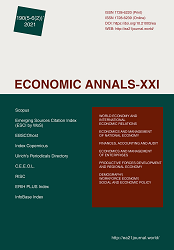Financial literacy programmes targeting the poor: the possibilities of using financial literacy as a tool for financial inclusion
Financial literacy programmes targeting the poor: the possibilities of using financial literacy as a tool for financial inclusion
Author(s): Zsuzsanna GyőriSubject(s): National Economy, Social development, Economic development, Socio-Economic Research
Published by: Institute of Society Transformation
Keywords: Financial Literacy; Financial Awareness; Financial Inclusion of Poor Communities; Hungary;
Summary/Abstract: The main aim of this study is to examine the nature of the term financial literacy and link it to opportunities for financial inclusion. The author uses experience of some Hungarian programmes. Financial literacy is the focus of some of them, while in other cases it is just a part of a more complex initiative. After the literature review, the study offers answers for the following research questions: • What are the main characteristics of existing financial literacy programmes in Hungary? • How financial exclusion and the lack of financial literacy are connected in practice? • What are the strengths (achievements) and weaknesses (pitfalls and disadvantages) of existing financial literacy programmes related to the financial inclusion of poor and marginalized social groups? Data from semi-structured in-depth expert interviews, documents and former research papers were collected for identifying Hungarian financial literacy programmes and their existing, missing and potential connections to financial inclusion. Originality of the Research In the literature, there are few articles that connect financial literacy and financial inclusion. Similarly, in practice, financial literacy programmes rarely target the poor. In turn, financial awareness is a very strong prerequisite of financial inclusion, e.g. successful debt settlement for financially vulnerable groups. The findings from the study will enlighten policy-makers, managers of financial institutions and financial inclusion advocates on the importance of special context and complexity of financial literacy programmes provided for the poor.
Journal: Економічний часопис - ХХІ
- Issue Year: 190/2021
- Issue No: 5-6(2)
- Page Range: 162-170
- Page Count: 9
- Language: English

